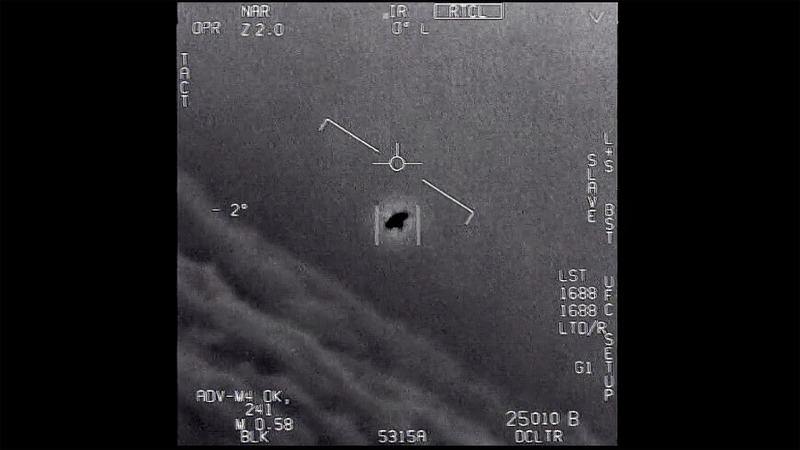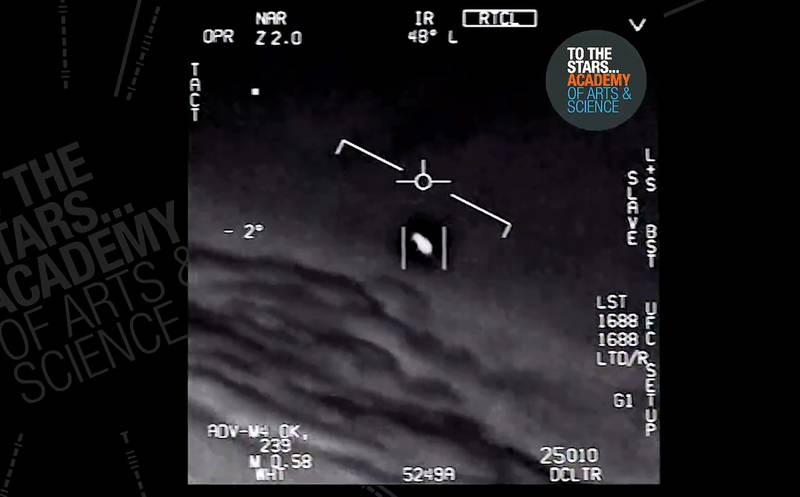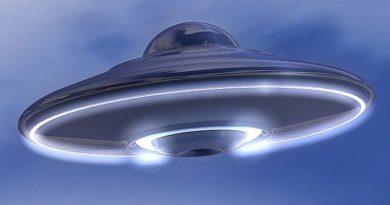UFOs pose real danger, says Pentagon, but aliens aren’t to blame — probably
Defense Department officials on Tuesday confirmed that unidentified flying objects are real and pose a potential serious threat to the country.
However, they aren’t panicking about aliens invading America anytime soon.
That’s because military officials believe that nearly all of the unexplained events could be explained with more research and observation. To do that, they need military members to be more open to reporting the mystery objects without fear of being laughed off as science fiction conspiracy theorists.
RELATED

“We are attempting to explain what may be natural phenomenon, or sensory phenomenon, or legitimate counterintelligence threats to places where we have [military] bases or platforms,” said Ronald Moultrie, under secretary of defense for intelligence, in testimony before the House Intelligence Committee.
“Hopefully, if we get more information out there, we’ll start to lessen the impact of some of those spurious reports.”
During the hearing — the first public hearing on UFOs before Congress in more than 50 years — military officials acknowledged that sightings of “unidentified aerial phenomena” have jumped significantly over the last two decades.
Scott Bray, deputy director of Naval Intelligence, said the reports are “frequent and continuing,” especially around military bases and training areas.
A Defense Department intelligence report last year detailed 144 UFO encounters between 2004 and 2020. Bray said there have been 11 “near misses” with military aircraft from the unknown objects.
Pentagon leaders are establishing a new office focused on the UAPs, “to facilitate the identification of previously unknown or unidentified airborne objects in a methodically logical and standardized manner,” Moultrie said.
Officials said most of those events likely have mundane explanations — things like commercial drones and “airborne clutter” — that cannot be proven because of a lack of data on the incidents.
In many cases, the reports come from pilots flying by objects at high speed, spotting something amiss for only a second or less. But Bray said at least some could pose significant threats, either from foreign adversaries or accidental collisions.
Less likely (though, officials acknowledged, not completely debunked) is the possibility of alien life watching humans from the skies above.
RELATED

“We have no material, we have detected no emanations within the UAP Task Force that would suggest it’s anything non-terrestrial in origin,” Bray said.
Both lawmakers and the defense witnesses said public hearings like Tuesday’s are important to calm conspiracy theories about the military hiding proof of alien life. Public discussions are also key to encouraging the collection of more information on sightings so there can be a rigorous scientific analysis of every incident, officials said.
Several committee members pressed the defense officials for any additional evidence of extraterrestrial encounters. They also acknowledged that the Pentagon’s explanations are unlikely to stop public speculation about possible alien encounters being covered up by military leaders.
Indeed, after the public session, the committee held a closed, classified briefing continuing discussion on the topic, a move they conceded was both problematic and necessary to protect sensitive military information.
Moultrie, who confessed to being a big science fiction fan during his testimony, said the Defense Department is open to all potential explanations for the UFOs.
But rather than looking to outer space for answers, officials are looking anywhere they can for better data.
“We are all curious and we seek to understand the unknown,” Moultrie said. “And as a lifelong intelligence professional, I’m impatient. I want the immediate explanations for this as much as anyone else.
“However, understanding can take significant time and effort.”
Leo covers Congress, Veterans Affairs and the White House for Military Times. He has covered Washington, D.C. since 2004, focusing on military personnel and veterans policies. His work has earned numerous honors, including a 2009 Polk award, a 2010 National Headliner Award, the IAVA Leadership in Journalism award and the VFW News Media award.
This article has been archived for your research. The original version from DefenseNews.com can be found here.


